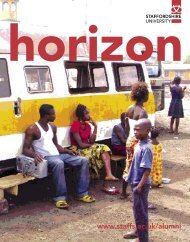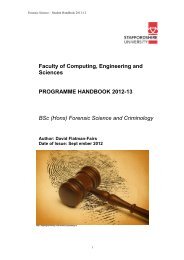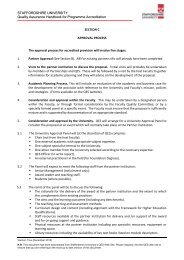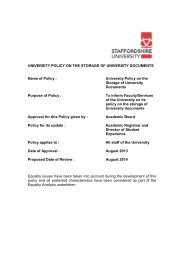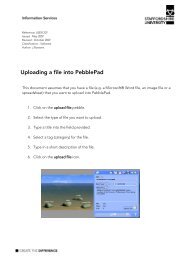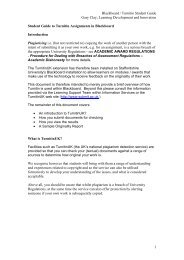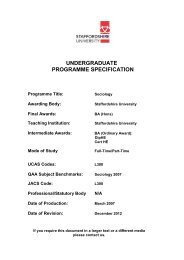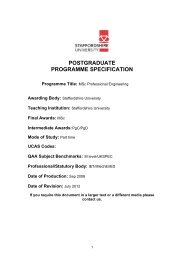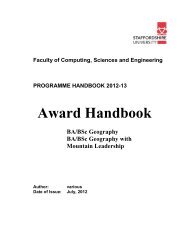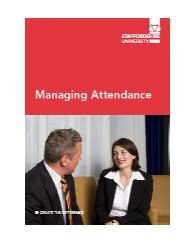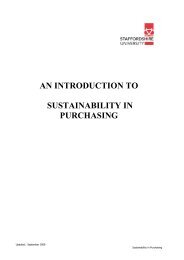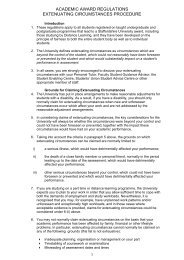DICE Project Final Report Resource Discovery Tools Evaluation and ...
DICE Project Final Report Resource Discovery Tools Evaluation and ...
DICE Project Final Report Resource Discovery Tools Evaluation and ...
Create successful ePaper yourself
Turn your PDF publications into a flip-book with our unique Google optimized e-Paper software.
User <strong>Evaluation</strong><br />
<strong>DICE</strong> <strong>Final</strong> <strong>Report</strong><br />
The feedback from the User <strong>Evaluation</strong> is summarized here <strong>and</strong> recorded in full in Appendix B.<br />
We make some comment first on the nature <strong>and</strong> conduct of the evaluation.<br />
While the focus of the exercise was to evaluate D+ (in the context of other available discovery<br />
tools <strong>and</strong> services), we were also looking for feedback in related areas (integration, re-use of<br />
resource lists, educational focus). For users who were not especially familiar with resource<br />
discovery or even e-learning, this was quite challenging, so evaluators were provided with a<br />
briefing paper introducing <strong>Resource</strong> <strong>Discovery</strong> <strong>and</strong> explaining ‘Advanced Topics’. Our <strong>Resource</strong><br />
<strong>Discovery</strong> <strong>Tools</strong> Guide (Appendix A) included many screenshots using different RD tools <strong>and</strong><br />
services to make it more easily readable, <strong>and</strong> a Quick Guide was also produced, aimed at naïve<br />
users. Descriptions of the different RD <strong>Tools</strong> drew attention to particular features relevant to the<br />
evaluation. The on-line feedback form was also designed to be user-friendly, consisting of only a<br />
dozen or so open questions encouraging free-form reply.<br />
While we were only partially successful in capturing information on all points, the evaluation was<br />
nevertheless useful, endorsing our own findings <strong>and</strong> bringing to light other issues. It is one thing<br />
to be aware of a particular issue, quite another to decide on how to act on that in light of the<br />
feedback.<br />
It proved more difficult to recruit evaluators than anticipated, especially outside the university. We<br />
advertised on several mailing lists amongst e-learning practitioners, locally, regionally <strong>and</strong><br />
nationally; made presentations to VLE user groups in the West Midl<strong>and</strong>s; contacted colleagues in<br />
the SURF colleges <strong>and</strong> posted flyers at both our Stafford <strong>and</strong> Stoke campus. Ultimately though,<br />
only about half of those who were engaged or expressed an interest responded. We had<br />
allocated a certain budget to remunerate evaluators, which was just as well: we would not<br />
recommend anyone should rely on goodwill to conduct such an exercise.<br />
There is ample evidence from our own <strong>and</strong> others’ research of interest, if not practice, in this<br />
area 6 . Contrary to our initial expectation (as described in our RD <strong>Tools</strong> Guide) several<br />
respondents from the FE sector indicated that they thought D+ was more appropriate for HE, <strong>and</strong><br />
that FE colleges might have other issues in implementing such. Thus, locally at least, the<br />
evaluation highlighted significant cultural differences between HE <strong>and</strong> FE relating to the<br />
curriculum, infrastructure (e.g. firewalls) <strong>and</strong> e-learning practice (e.g. authentication).<br />
Certain input to the evaluation resulted from follow up conversations <strong>and</strong> email correspondence,<br />
outside of the on-line submissions.<br />
Feedback Summary<br />
The feedback reflected the different expectations of more less experienced users. We were<br />
grateful to receive input from several practitioners who had particular expertise in resource<br />
discovery, but other respondents seemed not to have read the Guide or else were less than<br />
conscientious in their replies. Evaluators were recruited from students, education technologists,<br />
academics, <strong>and</strong> other e-learning practitioners (managers) mainly at local FE <strong>and</strong> HE institutions<br />
as follows<br />
academics 3<br />
students 5<br />
education technologists 4<br />
practitioner / mgr 3 FE / HE 4 / 11 Non returns 8<br />
6 Considering anecdotal evidence, content <strong>and</strong> trends in VLE implementation (BB building blocks,<br />
repositories), commercial systems such as Sentient, Discover, the CREE project, related work at<br />
Edinburgh, Heriot Watt, Manchester, other HE institutions.<br />
11



